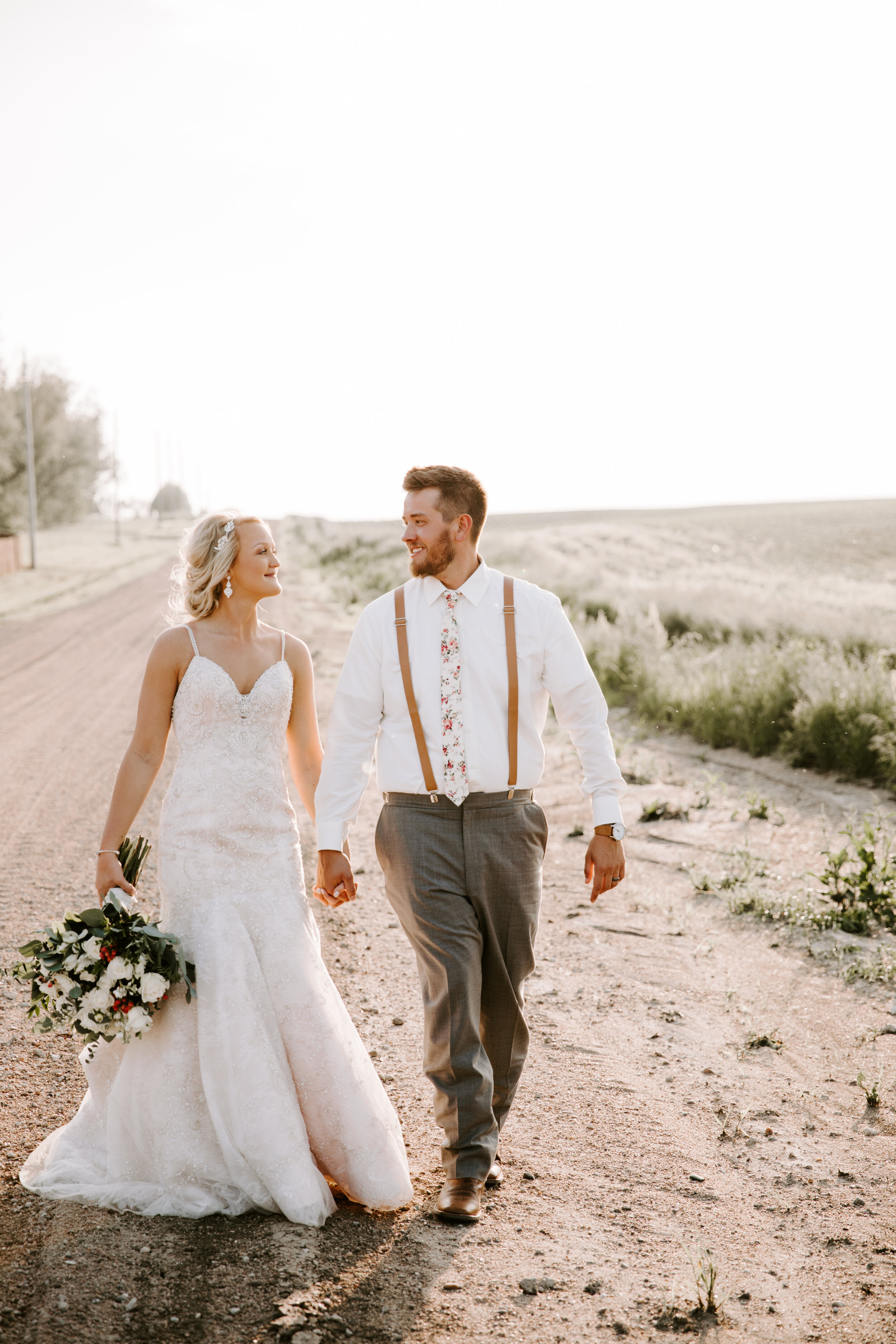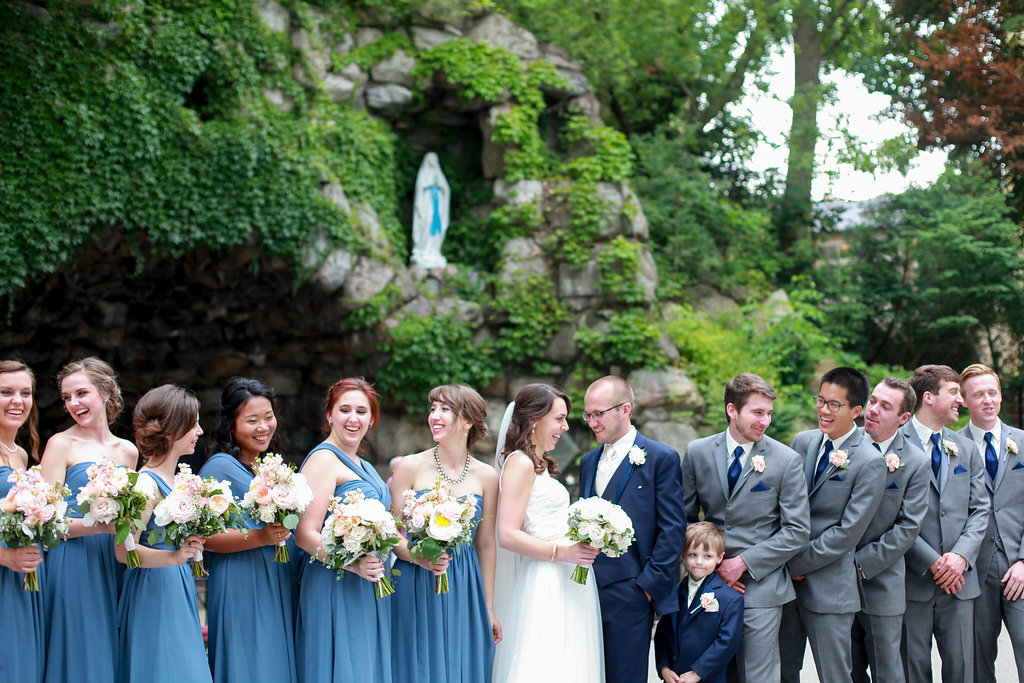Praying with Mary, Wife of Joseph
/ERIN BUCHMANN
In sacred art, popular devotion, and even the liturgical calendar, the Church often honors the Blessed Virgin Mary in her role as Jesus’ mother.
PHOTOGRAPHY: KASSONDRA PHOTOGRAPHY
This makes sense: after all, each of our lives draws meaning from Jesus and is meant to be centered upon Him, and Mary’s life was centered upon Jesus in a very concrete way through their mother-child relationship.
But while she is in fact Jesus’ mom and the spouse of the Holy Spirit (and not to diminish those realities!), during her earthly life she was also the wife of a human spouse, St. Joseph.
As brides, we can relate to Mary in this shared role. She has so much to teach us about human love and spousal life!
As the Joyful, Luminous, Sorrowful and Glorious Mysteries of the Rosary help the faithful to meditate upon Mary’s relationship with Jesus, consider praying over the keystone events in Mary’s relationship with St. Joseph in a similar way, especially in this year dedicated to St. Joseph.
Here is a rosary-style reflection on five events Mary and Joseph experienced together in their marriage: their wedding, the flight into Egypt, their search for Jesus in Jerusalem, daily life in Nazareth, and Joseph’s death.
The First Spousal Mystery: Mary and Joseph are Wed
“Joseph … was a righteous man”
I imagine Mary must have been excited about her upcoming wedding. Joseph, being a righteous man, would likewise have been approaching their wedding day with complete purity of heart and mind. Surely neither one ever expected the path their love story would take (who could anticipate receiving multiple angelic visits and parenting the son of God, after all?), but by rooting their hearts in a perfect love of God and of each other, Mary and Joseph would have been able to receive each blessing from God and from each other as a gift unshrouded by sin, selfishness, or expectations.
Mary, help me to love my husband with perfect purity.
The Second Spousal Mystery: The Flight into Egypt
“Joseph rose and took the child and his mother by night and departed for Egypt.”
Assuming Jesus was a typical, squirmy, squirrely little kid, Mary probably had her hands full with him, especially as they fled to Egypt to avoid the wrath of King Herod. Not to mention that they were traveling at night and probably trying to travel quietly! She must have relied on Joseph to guard their little family from all sorts of dangers and potential pitfalls during this journey. She could not do everything on her own, but neither was she called to. Just as God had given her to be a helpmate to Joseph, God had given Joseph as a helpmate to her.
Mary, help me to trust in my husband’s ability to provide for our family.
The Third Spousal Mystery: Searching for Jesus in Jerusalem
“Your father and I have been looking for you with great anxiety.”
The three days during which Mary and Joseph were searching for Jesus must have been among the most stressful times of their shared life. Mary surely trusted in God’s providence throughout, but as she herself says, she was more than a little nervous! There must have been a great temptation for both Mary and Joseph to cast blame on the other, to grow sharp with each other, and to withdraw from each other rather than draw closer together in light of the stressful situation they were facing. Yet, after three days of searching, Mary and Joseph arrived at the temple side by side and there found Jesus.
Mary, help me to always remember that my husband and I are on the same team.
The Fourth Spousal Mystery: Daily Life in Nazareth
“Your wife will be like a fruitful vine within your home”
We know little about the day-to-day life of the Holy Family in Nazareth. Like any family, the Holy Family probably also experienced their share of hardships: misunderstandings, tight finances, challenging circumstances, deaths and divisions in their extended family. Mary likely knew well the exhaustion that accompanies long nights sitting up with a sick child and the tedium of household chores. There may have even been times when Mary longed for a break from her household and her family, even though she loved them dearly. Mary and Joseph were both human, after all!
Mary, help me to see the gifts and the graces hidden within my ordinary, daily life.
The Fifth Spousal Mystery: The Death of Joseph
“Perfect love drives out fear”
Mary was probably only in her thirties or early forties when Joseph passed away, leaving her a widow. Despite the relative brevity of their relationship their marriage was clearly a successful one, as both Mary and Joseph are not only saints, but Queen of Heaven and Patron of the Universal Church, respectively! I imagine their final moments together at Joseph’s deathbed were infused with sorrow at their impending separation, but also filled with hope, joy and a deep peace. Each was entrusting both themselves and their beloved spouse to God in a new way.
Mary, help me to love my husband with the peace that comes from God.
Spend some time meditating with these moments in the life of the Holy Family, and learn from the example set by Mary and St. Joseph’s marriage to help you grow in holiness through your own vocation.
About the Author: Erin Buchmann hails from the lake country of central Minnesota. She enjoys writing things, cooking things, growing things, and spending time with her family. She and her husband are the parents of two little miracles.
























